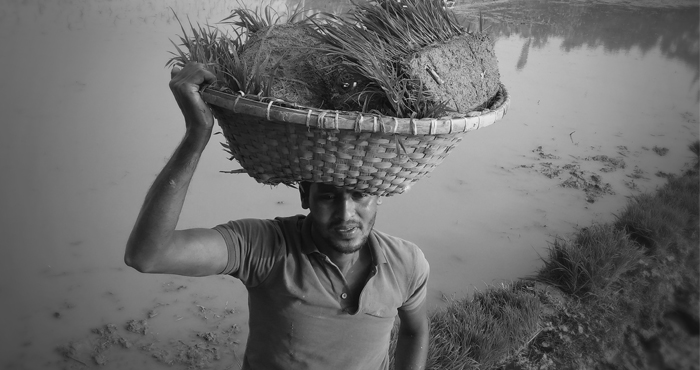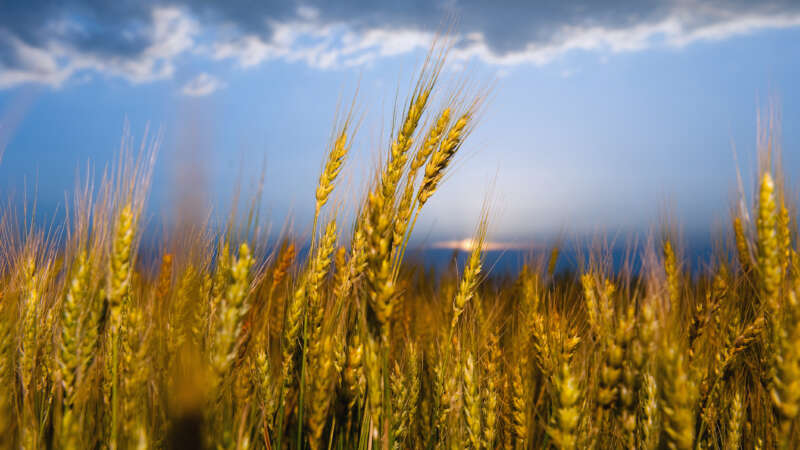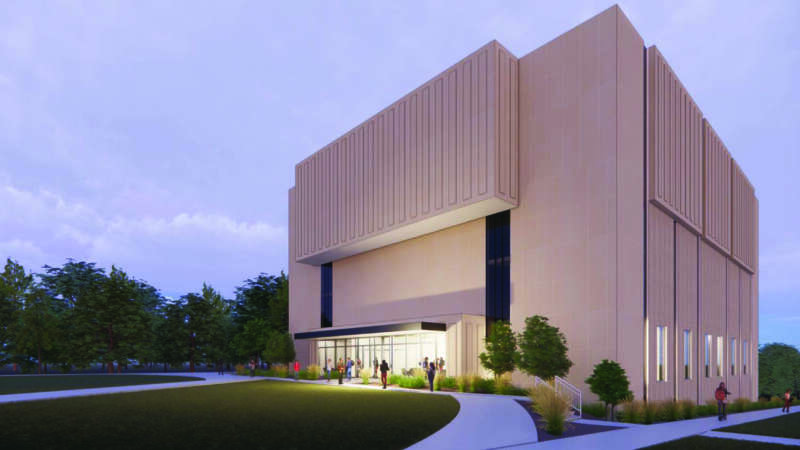K-State’s Feed the Future Innovation Labs tackle food security
Making sure people have enough healthy and affordable food requires innovation and global cooperation. Kansas State University is leading the world in global food security.
K-State was awarded four highly competitive grants from the U.S. Agency for International Development (USAID) to establish a fund for our Feed the Future Innovation Labs. The labs themselves are uncomplicated in their idea: share information and knowledge. They focus on improving the resiliency and production of food crop plants, as well as preventing crop losses in key countries, all to end world hunger. No other university has as many USAID grants awarded or as much funding for this initiative — close to $110 million to sustain what K-State is known for around the world: building human capacity and building institutional development.
The grand challenge of this generation of scholars is to increase food production by 60% before 2050 to meet the needs of 9.5 billion people using existing farmland and without damaging the environment. That is the concept of sustainable intensification — one of K-State’s innovation labs that is leading these global efforts.
“We have to increase our food production by 60% in order to feed the world, and we could take care of 30% of that just by adapting our practices and fixing our food losses and food waste issue,” said Dr. Vara Prasad, a University Distinguished Professor and the director of the Sustainable Intensification Innovation Lab (SIIL). He continued “We have to produce and provide access to safe and nutritious food to all using ways that are environmentally sustainable, economically viable and socially acceptable” and “focusing on research, education, outreach and building human and institutional capacity is key to the success”.
“Our number one goal is to help our smallholder farmers in the countries we are working in to intensify their farming system,” said Andra Williams, program administrator for SIIL, as well as a graduate student earning a certificate in data analytics. “What is important in our work is to reach out to people here in the U.S. to tell them that this is not just happening ‘over there’; it’s a whole system and we are affected by things across the world.”
“Historically, a lot of the innovation labs were focused on one very specific thing, like a commodity crop. Our lab focuses on farming systems as a whole. At the time the lab was created this was a new approach,” said Andra. “We want to use this wealth of information we have floating around, the years and decades of knowledge and research, and create something out of it that can help people move forward.”
“K-State’s reputation is what gives us this great privilege to be able to fund research projects through grants on our campus. We earned this by reinvigorating the land-grant mission internationally and engaging youth in agriculture. “Kansas State University is uniquely positioned to help around the world and be able to create empowerment in ways we can see,” said Andra.
Engaging international youth in this initiative is an issue of national security as well. If we can help other countries and ourselves with food security and provide major opportunities to youth, this will have a positive impact on national security. “Unless you’re dead, you still have time to make a difference,” said Andra. “There are so many ways to consider how you can make a difference. Find out who is innovating in your community in an area that lines up with your interests and go talk to them. There is never a reason to say no to making a difference.”
K-State hosts four Feed the Future Innovation Labs
Sorghum and Millet Innovation Lab
- Focuses on Haiti and the African nations of Ethiopia, Senegal and Niger. Experts are using science and technology to produce innovations such as climate-resilient varieties of sorghum and millet as well as more profitable market approaches for the farmers in the target nations.
Lab for Applied Wheat Genomics
- Aims to develop heat-tolerant, high-yielding, and farmer-accepted wheat varieties for South Asia. Development and delivery of these will have the potential to increase on-farm income and food security throughout South Asia.
Post-Harvest Loss Innovation Lab
- Addresses Post-Harvest Loss (PHL) and food waste of durable staple crops. These losses consist of food already in the production system that could have been used to reduce food insecurity and increase food quality, safety and nutrition.
Sustainable Intensification Innovation Lab
- Focuses on increasing production from existing farmland without damaging the environment and addresses this challenge through farming systems approaches that consider aspects of both biophysical and social sciences.






